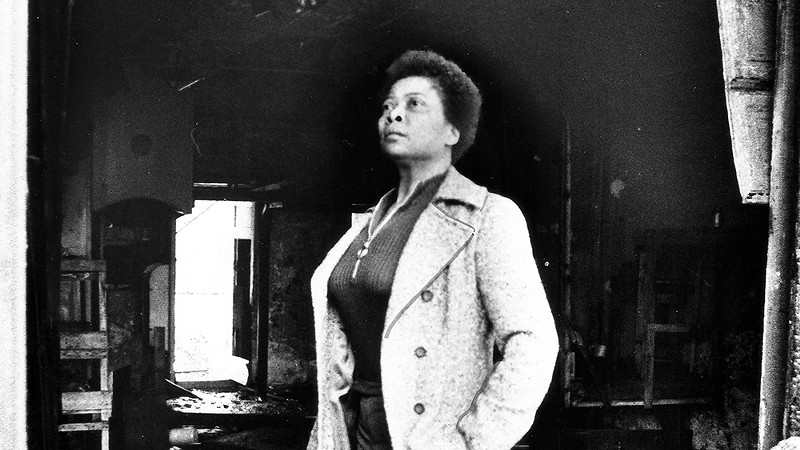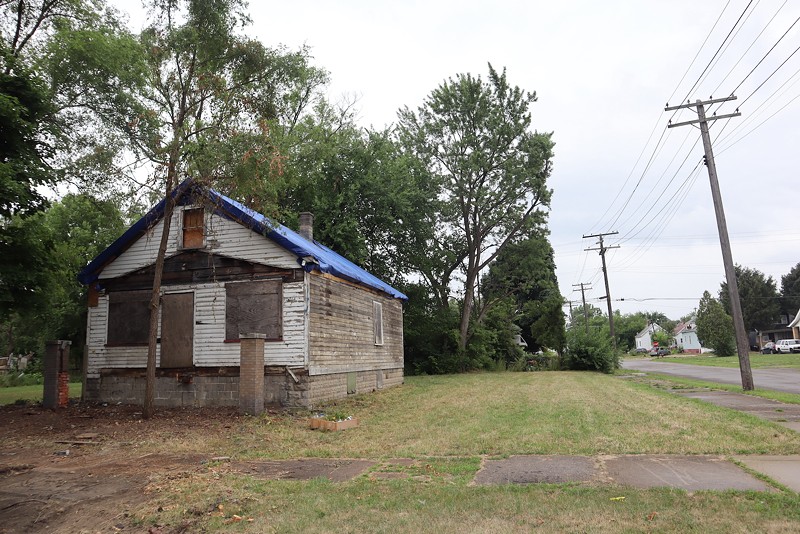Detroit Land Bank Authority seeks buyer to preserve home of civil rights advocate Sarah E. Ray
It could be sold for only $1 to buyer who will honor the activist’s legacy
A piece of Detroit’s civil rights history could be sold for just $1.
The Detroit Land Bank Authority is seeking a buyer for the home of unsung activist Sarah E. Ray, who helped desegregate the famed Boblo boats in 1948. Potential buyers must present a proposal to preserve or reimagine the disheveled home and an adjacent lot in Ray's honor.
Located at 9308 Woodlawn St., Ray’s former dwelling was named one of America’s “11 Most Endangered” historic sites by the National Trust for Historic Preservation in 2021. The DLBA is willing to let it go for only $1 to someone who will “commit to creating publicly accessible space that honors Ray’s legacy,” according to a press release.
Ray was in her 20s when she took a racial discrimination case to the U.S. Supreme Court after being denied a seat on the S.S. Columbia ferry to Boblo Island. Future Supreme Court Justice Thurgood Marshall (who was an NAACP lawyer at the time) represented Ray, whose success some scholars credit with paving the way for the landmark Brown v. Board Education case. While living at the Woodlawn home, Ray founded a racial unity and youth center called Action House nearby.
Ray remained largely unknown as a historical figure until documentary filmmaker Aaron Schillinger and former Metro Times editor and Free Press columnist Desiree Cooper started the Sarah E. Ray Project. Ray’s story is also featured in Schillinger’s documentary film Boblo Boats: A Detroit Ferry Tale, which will hit select metro Detroit theaters this September.
“Ms. Ray (aka Lizz Haskell) fostered community empowerment through Action House in the 1970s,” Cooper said in the release. “We are thrilled that the Land Bank is taking concrete steps to preserve the legacy of one of Detroit's forgotten Civil Rights leaders. We hope that the winning bid will use her name and legacy to inspire neighborhood development in the future.”
Cooper and Schillinger worked with the DLBA and archivists to remove artifacts from the home, which were donated to the Charles H. Wright Museum of African American History and the Detroit Historical Society.
DLBA-approved examples of ways to restore the house include things like a memorial park dedicated to Ray, an interactive installation, a community space, or a residency program for activists or artists focused on social justice.
Interested buyers with a vision can submit proposals for Ray’s house and the lot where Action House once stood by 5 p.m. on Friday, Aug. 19.
For more information, see buildingdetroit.org.
Stay connected with Detroit Metro Times. Subscribe to our newsletters, and follow us on Google News, Apple News, Twitter, Facebook, Instagram, Reddit, or TikTok.



